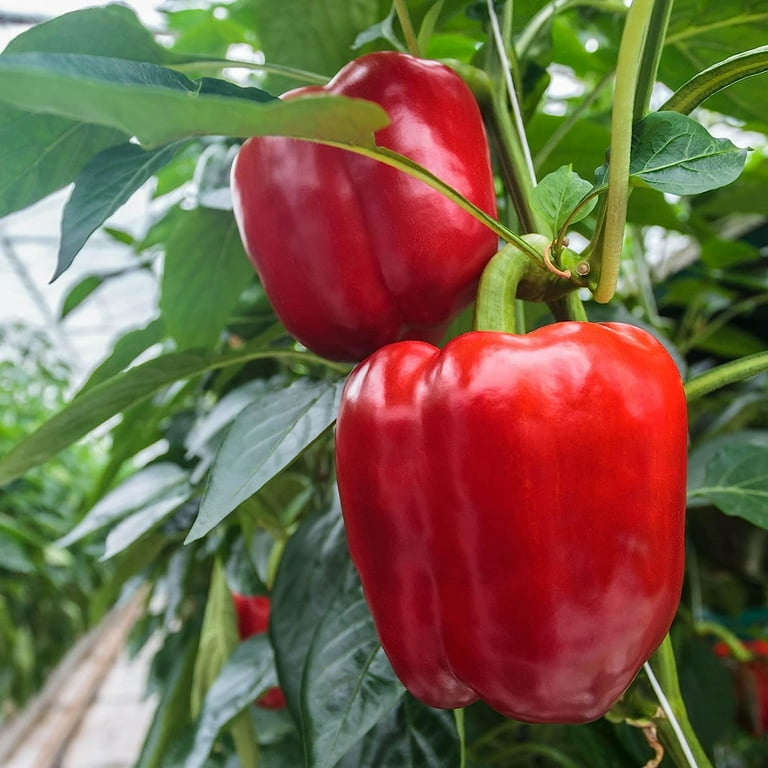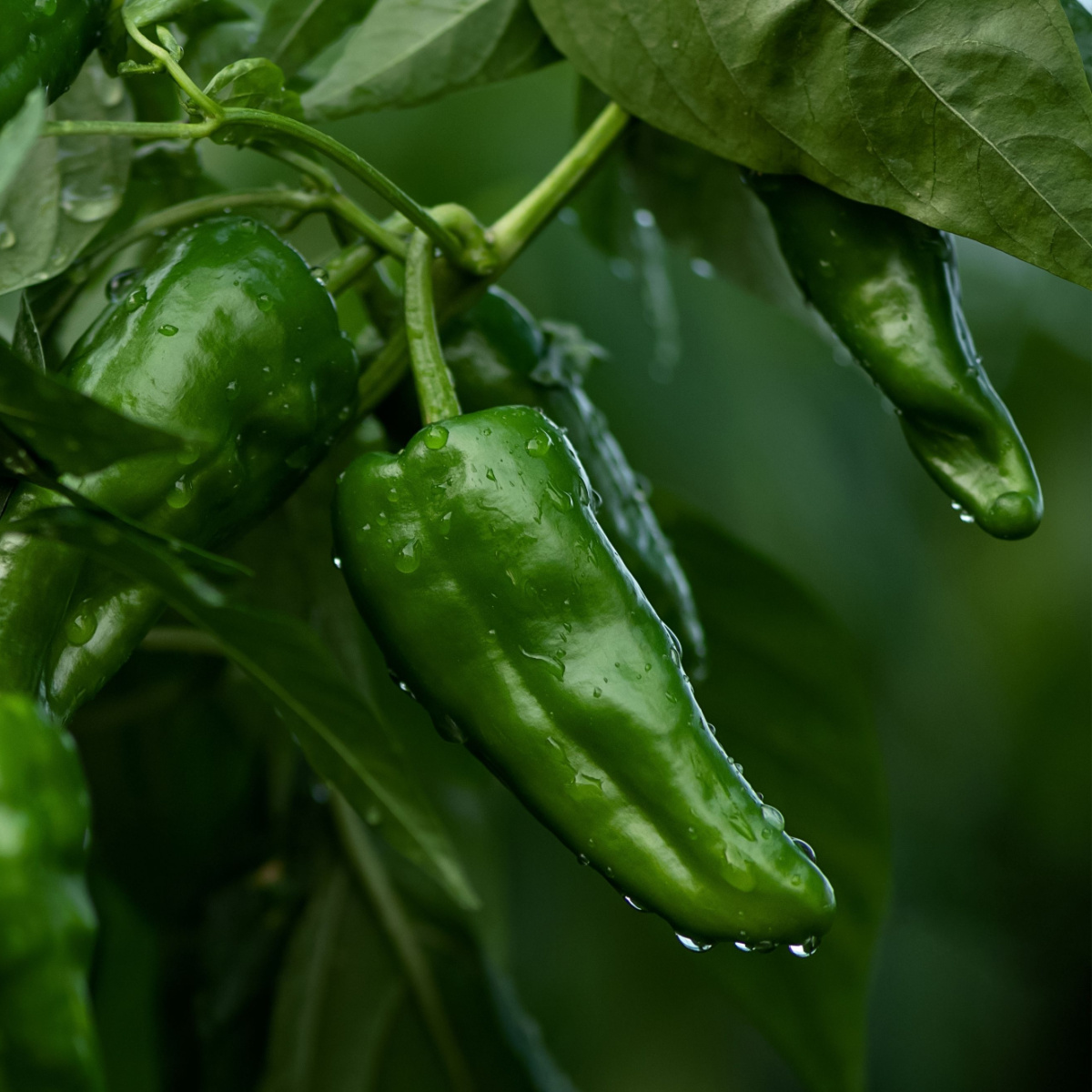Selecting the Best Fertilizers for Peppers: Professional Recommendations
Selecting the Best Fertilizers for Peppers: Professional Recommendations
Blog Article
The Advantages and Techniques of Making Use Of Fertilizers for Peppers in Your Yard
The benefits of making use of fertilizers for peppers expand beyond simple plant development; they play an essential function in improving fruit manufacturing and overall plant health. Comprehending the details requirements of pepper plants and choosing the best plant food can be a game-changer in your horticulture trip. By discovering the techniques of appropriate plant food application and establishing a schedule customized to your pepper plants, you can unlock their complete capacity.
Value of Plant Foods for Peppers
Plant foods play a vital duty in guaranteeing the optimum growth and efficiency of pepper plants in a garden setup. The key nutrients required by pepper plants are phosphorus, potassium, and nitrogen.
When peppers do not have these vital nutrients, they might exhibit stunted growth, yellowing leaves, minimized blooming, and bad fruit collection. By giving the ideal fertilizers in the proper amounts, gardeners can attend to these shortages and promote healthy plant growth. Furthermore, fertilizers aid pepper plants stand up to ecological stressors such as severe temperatures, pests, and diseases, enabling them to concentrate their power on development and fruit production.
Picking the proper fertilizer formulation, whether natural or artificial, and complying with correct application strategies are crucial consider maximizing the advantages of plant foods for pepper plants in a garden setup. Regular soil screening can likewise aid establish any kind of nutrient inequalities and overview gardeners in creating a customized fertilizing strategy tailored to the specific requirements of their pepper plants.
Selecting the Right Fertilizer
Choosing the appropriate fertilizer for pepper plants is crucial for guaranteeing their optimum growth and productivity in a garden setup. When choosing a fertilizer for peppers, it is important to think about the details nutrient requirements of these plants.

Before using any type of fertilizer, it is necessary to carry out a soil examination to identify the present nutrient levels in the soil. This information can direct you in selecting the best plant food and developing a customized fertilizing strategy for your pepper plants, advertising healthy growth and abundant returns.
Application Techniques for Optimum Outcomes
When applying fertilizers to pepper plants, it is essential to follow particular methods to make sure that the nutrients are properly soaked up and utilized by the plants. One necessary strategy is to apply the fertilizer evenly around the base of the plants, ensuring that it is not concentrated in one location.
Another essential application method is to water the plants extensively after using the plant food. This helps to dissolve the nutrients and lug them to the origins where they are needed for development. Furthermore, it is suggested to use plant foods during the cooler components of the day, such as early morning or late night, to avoid dissipation and take full advantage of absorption.
Furthermore, routinely checking the plants for any type of indications of nutrient shortage or extra can help in readjusting the plant food application as necessary. By using these vital application weblink methods, you can ensure that your pepper plants get the necessary nutrients for healthy development and abundant returns.
Fertilizer Arrange for Pepper Plants
When should pepper plants be fed to make sure optimal development and productivity in your garden? Establishing a well-structured plant food schedule is vital for the healthy and balanced development of pepper plants - best fertilizers for peppers. Peppers have details nutritional demands that vary throughout their growth phases

As the pepper plants start flowering, button to a phosphorus-heavy plant food to advertise durable flower and fruit formation. Potassium-rich plant foods ought to be presented throughout the fruiting phase to enhance fruit high quality and return.
Throughout the expanding period, keep track of the plants for any signs of nutrient deficiencies and change the fertilizer schedule appropriately. Remember to sprinkle the plants deeply after each fertilization to aid in nutrient absorption. By complying with a regular and well-tailored plant food schedule, you can ensure vigorous growth try this out and plentiful harvests from your pepper plants.

Tips for Feeding Peppers Successfully
Effectively fertilizing peppers requires not only understanding their details nutrient requirements throughout various development stages, as discussed earlier, but also implementing sensible approaches to maximize nutrient uptake and utilization. One key tip is to conduct a soil examination prior to applying any type of fertilizers to identify the existing nutrient degrees. This helps in tailoring the plant food application to fulfill the specific needs of the pepper plants. It is suggested to utilize a well balanced plant food with a proportion such as 10-10-10 or 20-20-20 to make sure peppers receive a mix of important nutrients. Applying plant foods in the correct amount and at the correct time is vital. It is typically suggested to feed peppers gently however often throughout the growing season. Over-fertilizing can result in nutrition inequalities and cause injury to the plants. Additionally, sprinkling the plants prior to and after fertilizing helps in the efficient absorption of nutrients. Finally, including organic matter right into the soil can enhance its nutrient-holding ability, assisting in the long-term health and wellness of pepper plants.
Conclusion
To conclude, plant foods play an essential duty in the growth and advancement of pepper plants in your garden. By picking the proper fertilizer and applying it correctly, you can ensure your peppers receive the necessary nutrients for optimal growth. best fertilizers for peppers. Adhering to a constant plant food routine and implementing efficient methods will assist optimize the advantages of fertilizers for your pepper plants, leading to productive and healthy and balanced crops
The benefits of utilizing plant foods for peppers extend beyond plain plant development; linked here they play a crucial function in enhancing fruit manufacturing and total plant health.Fertilizers play an important duty in ensuring the ideal growth and performance of pepper plants in a yard setup. When choosing a fertilizer for peppers, it is essential to consider the certain nutrient requirements of these plants. When applying plant foods to pepper plants, it is essential to comply with details techniques to make certain that the nutrients are effectively taken in and utilized by the plants. Following a consistent fertilizer routine and applying efficient techniques will certainly aid make best use of the benefits of plant foods for your pepper plants, resulting in effective and healthy and balanced plants.
Report this page